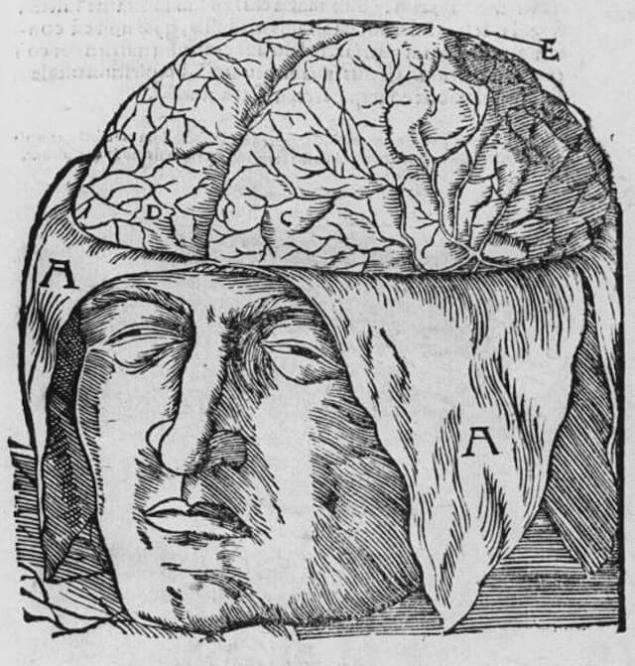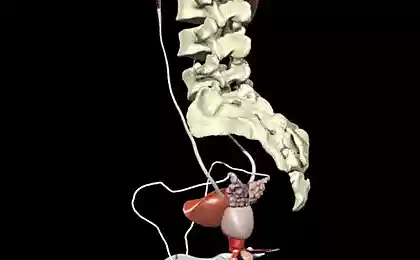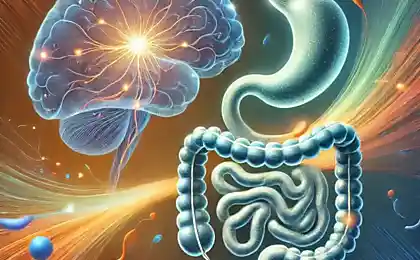461
Psychosomatics, from antiquity to the present day
The term "psychosomatic" was introduced into medical terminology by the German physician Johann Christian Heinroth in 1818, when he wrote about the causes of insomnia. But the critical importance of understanding the unity of body and soul (Greek psycho – soul soma – body) was known a very long time. Moreover, this ancient knowledge of the unity of the psychical and physical in man was base in all known cultures and centuries has been used successfully to treat almost any disease.

We're not talking about shamanism and esoteric practices, and on a comprehensive approach to the person, which takes into account all the factors of its existence – breath, food, lifestyle, social behavior. All of that in varying degrees affects his health. Methods of prevention and treatment of diseases, the correction of psychological characteristics of personality, was used in ancient India and ancient China. Thus, the Indian doctors of antiquity thought that the anger, sadness, grief, and fear is the first rung on the ladder of any disease.
The ancient philosopher Socrates argued that all diseases of the body associated with emotional pain, and Plato, student of Socrates, wrote about the fact that you cannot treat the body without paying attention to the mental illnesses, as body and soul are inseparable. The famous Greek physician Hippocrates, who is considered the father of modern medicine, also spoke about the unity of physical and spiritual in man and called in the treatment to eliminate the cause of disease, not to eliminate the symptoms of the disease. The doctrine of Hippocrates on the nature of man was aimed at developing preventive, diagnostic and therapeutic techniques, which allowed to detect the propensity of patients to certain diseases and prevent the development of such pathologies.
Hippocrates was convinced of the necessity of studying human nature and various aspects of his life, including nutrition, behavior and mental function in order to efficiently fight against diseases. It Hippocrates introduced into science the concept of "temperament" (in Latin this word means "proper ratio"). Under the temperament of the great scientist of antiquity was understood as the physiological and individual psychological characteristics of a person. Hippocrates identified four temperaments – sanguine, choleric, phlegmatic and melancholic. Depending on temperament, it was assumed, in particular, and the propensity to certain diseases. The school of Hippocrates is called the immediate successors of the ideas of the founder of scientific medicine, is the first scientific school, marking the issue of individual differences in approach to healing.
In modern science a major role in the revival of interest in the psychosomatic approach has played a psychoanalytic concept of Sigmund Freud. According to Freud, those experiences that can't accept consciousness, pushed into the unconscious, but continue to influence a person, increasing emotional stress. This tension has no release, discharge and, consequently, leads to somatic (bodily) disorders. Freud and his followers thoroughly studied is the relationship driven experiences and development of various diseases, many of their findings have been repeatedly confirmed by medical practice, and are indisputable scientific facts.
Modern psychological science allocates a number of reasons of psychosomatic reactions. Using the classification of the American psychotherapist Leslie Lecron, can be called the most typical causes of psychosomatic diseases:
The conflict between the different parts of one person. These "parts" can be, for example, the opposite of desire or personal aspirations. In this case, the conditional victory of one of the parts, the second starting gradually to manifest themselves, to create a hidden, but significant tension, causing psychosomatic symptoms.
Body language. An example of such language expressions may be idioms like "this is my headache", "for him my heart is not there", "I detest", "to me this ties the hands". When a situation or an experience in consciousness is associated with a particular pain or uncomfortable feeling, this feeling can develop the actual disease of any organs or systems in the body – headache, shortness of breath, disruption of the gastrointestinal tract and so on.
Conditional benefits or "negative" motivation. This is when health problems bring certain benefits sick. Symptoms of psychosomatic disorders are not a simulation, deception, they are formed at an unconscious level, people do not understand that with the disease it's trying to solve the problem or achieve the desired goal.
The experience of the past. With a man, something happened in the distant past, for example, in childhood, outwardly the situation was already resolved, but internally continues to affect people, to burden him. On this background may develop psychosomatic illness.
Suggestion. The occurrence of symptoms by suggestion, sometimes, is influenced particularly authoritative for person of the people or a specific time of the unstable state of mind, when man is inclined to succumb to suggestion.
A self-inflicted punishment. Psychosomatic symptoms may appear when the person is unable to forgive himself. Regardless, real or imagined, is a wine, people can become seriously ill, as if punishing himself. So, in an effort to escape the torment of conscience, he may be doomed to the torments of corporal.
Also important for understanding the nature of psychosomatic disorders is the concept of alexithymia (the word in Greek means literally "lack of words to describe emotions"). According to this concept, the following properties of a person may act as a risk factor for psychosomatic illness:
Author: Yulia Ustinova
P. S. And remember, just changing your mind — together we change the world! ©
Source: www.ustinova.info/psihosomatika-ot-drevnosti-do-nashih-dnej/

We're not talking about shamanism and esoteric practices, and on a comprehensive approach to the person, which takes into account all the factors of its existence – breath, food, lifestyle, social behavior. All of that in varying degrees affects his health. Methods of prevention and treatment of diseases, the correction of psychological characteristics of personality, was used in ancient India and ancient China. Thus, the Indian doctors of antiquity thought that the anger, sadness, grief, and fear is the first rung on the ladder of any disease.
The ancient philosopher Socrates argued that all diseases of the body associated with emotional pain, and Plato, student of Socrates, wrote about the fact that you cannot treat the body without paying attention to the mental illnesses, as body and soul are inseparable. The famous Greek physician Hippocrates, who is considered the father of modern medicine, also spoke about the unity of physical and spiritual in man and called in the treatment to eliminate the cause of disease, not to eliminate the symptoms of the disease. The doctrine of Hippocrates on the nature of man was aimed at developing preventive, diagnostic and therapeutic techniques, which allowed to detect the propensity of patients to certain diseases and prevent the development of such pathologies.
Hippocrates was convinced of the necessity of studying human nature and various aspects of his life, including nutrition, behavior and mental function in order to efficiently fight against diseases. It Hippocrates introduced into science the concept of "temperament" (in Latin this word means "proper ratio"). Under the temperament of the great scientist of antiquity was understood as the physiological and individual psychological characteristics of a person. Hippocrates identified four temperaments – sanguine, choleric, phlegmatic and melancholic. Depending on temperament, it was assumed, in particular, and the propensity to certain diseases. The school of Hippocrates is called the immediate successors of the ideas of the founder of scientific medicine, is the first scientific school, marking the issue of individual differences in approach to healing.
In modern science a major role in the revival of interest in the psychosomatic approach has played a psychoanalytic concept of Sigmund Freud. According to Freud, those experiences that can't accept consciousness, pushed into the unconscious, but continue to influence a person, increasing emotional stress. This tension has no release, discharge and, consequently, leads to somatic (bodily) disorders. Freud and his followers thoroughly studied is the relationship driven experiences and development of various diseases, many of their findings have been repeatedly confirmed by medical practice, and are indisputable scientific facts.
Modern psychological science allocates a number of reasons of psychosomatic reactions. Using the classification of the American psychotherapist Leslie Lecron, can be called the most typical causes of psychosomatic diseases:
The conflict between the different parts of one person. These "parts" can be, for example, the opposite of desire or personal aspirations. In this case, the conditional victory of one of the parts, the second starting gradually to manifest themselves, to create a hidden, but significant tension, causing psychosomatic symptoms.
Body language. An example of such language expressions may be idioms like "this is my headache", "for him my heart is not there", "I detest", "to me this ties the hands". When a situation or an experience in consciousness is associated with a particular pain or uncomfortable feeling, this feeling can develop the actual disease of any organs or systems in the body – headache, shortness of breath, disruption of the gastrointestinal tract and so on.
Conditional benefits or "negative" motivation. This is when health problems bring certain benefits sick. Symptoms of psychosomatic disorders are not a simulation, deception, they are formed at an unconscious level, people do not understand that with the disease it's trying to solve the problem or achieve the desired goal.
The experience of the past. With a man, something happened in the distant past, for example, in childhood, outwardly the situation was already resolved, but internally continues to affect people, to burden him. On this background may develop psychosomatic illness.
Suggestion. The occurrence of symptoms by suggestion, sometimes, is influenced particularly authoritative for person of the people or a specific time of the unstable state of mind, when man is inclined to succumb to suggestion.
A self-inflicted punishment. Psychosomatic symptoms may appear when the person is unable to forgive himself. Regardless, real or imagined, is a wine, people can become seriously ill, as if punishing himself. So, in an effort to escape the torment of conscience, he may be doomed to the torments of corporal.
Also important for understanding the nature of psychosomatic disorders is the concept of alexithymia (the word in Greek means literally "lack of words to describe emotions"). According to this concept, the following properties of a person may act as a risk factor for psychosomatic illness:
- difficulties in identifying own feelings;
- the inability to Express the experience feelings;
- the difficulty in distinguishing between feelings and bodily sensations ("what if I'm sad, whether I'm hungry");
- the poverty of imagination and other manifestations of imagination;
- focusing on external events to a greater extent than on inner feelings.
Author: Yulia Ustinova
P. S. And remember, just changing your mind — together we change the world! ©
Source: www.ustinova.info/psihosomatika-ot-drevnosti-do-nashih-dnej/























